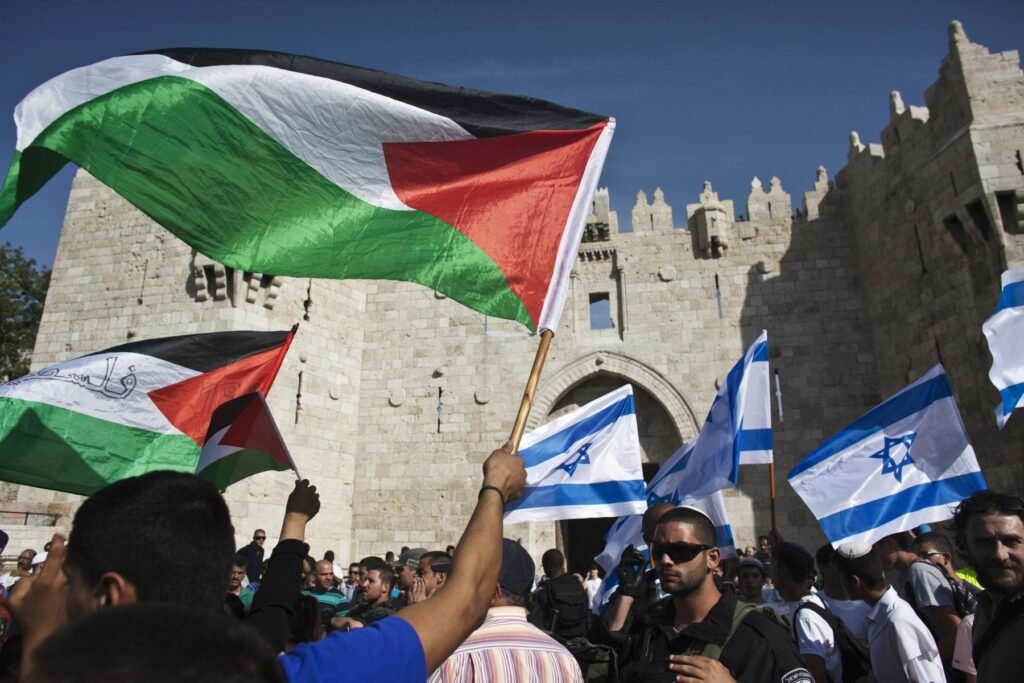Israeli Prime Minister Benjamin Netanyahu has vehemently rejected accusations of genocide leveled against Israel, denouncing the claims as “outrageous” and firmly defending his country’s actions in the face of mounting international criticism. The charge of slaughter, frequently employed with regards to Israel’s contention with Palestine, has started a warmed discussion over the understanding of worldwide regulation and the intricacies of the Israeli-Palestinian struggle.
At the heart of the controversy lies the question of whether Israel’s military operations and policies vis-à-vis the Palestinian territories constitute genocide under international law. The term “genocide,” defined by the United Nations Genocide Convention as the deliberate intent to destroy, in whole or in part, a national, ethnic, racial, or religious group, carries profound moral and legal implications. Critics of Israel’s actions argue that the systematic displacement, dispossession, and violence inflicted upon the Palestinian population amount to genocide, pointing to the mass displacement of Palestinians, the construction of settlements in occupied territories, and the periodic outbreaks of violence in Gaza as evidence of Israel’s culpability.
Prime Minister Netanyahu, however, has vehemently rejected such accusations, characterizing them as baseless and politically motivated attacks aimed at delegitimizing Israel on the world stage. In a statement addressing the allegations, Netanyahu reiterated Israel’s right to self-defense and underscored the country’s commitment to protecting its citizens from security threats posed by hostile actors in the region. He highlighted Israel’s longstanding efforts to pursue peace and negotiate a two-state solution with the Palestinians, emphasizing the need for a negotiated settlement based on mutual recognition and compromise.
The debate over the applicability of the term “genocide” to Israel’s actions underscores the complexities of the Israeli-Palestinian conflict and the divergent narratives that shape perceptions of the conflict. Proponents of the genocide charge argue that Israel’s policies, including the construction of settlements, the imposition of movement restrictions on Palestinians, and the use of lethal force against protesters, constitute systematic efforts to dispossess and marginalize the Palestinian population. They point to international law and human rights conventions as legal frameworks that condemn such actions and hold perpetrators accountable for crimes against humanity.

Conversely, supporters of Israel reject the characterization of its actions as genocide, emphasizing the context of ongoing security threats and the imperative of protecting Israeli citizens from terrorist attacks and violence. They argue that Israel’s military operations are aimed at combating terrorism and preserving its territorial integrity, rather than targeting civilians based on their ethnicity or nationality. They also highlight Israel’s efforts to provide humanitarian assistance to Palestinians and facilitate economic development in the West Bank and Gaza as evidence of its commitment to improving the lives of Palestinians.
The issue of genocide allegations against Israel is deeply intertwined with broader geopolitical dynamics and the Israeli-Palestinian conflict’s enduring legacy. The conflict, marked by decades of violence, displacement, and failed peace initiatives, has defied resolution despite numerous attempts by the international community to broker a lasting peace agreement. The charged rhetoric surrounding the conflict, fueled by historical grievances and competing claims to land and sovereignty, has polarized public opinion and hindered efforts to achieve a comprehensive and just solution to the conflict.
Against this backdrop, Prime Minister Netanyahu’s dismissal of the genocide charge reflects Israel’s longstanding position of defiance in the face of international criticism and pressure. Netanyahu’s government has consistently prioritized Israel’s security interests and territorial integrity, often at the expense of diplomatic relations with key allies and international institutions. The prime minister’s defiant stance underscores Israel’s determination to defend its actions on the world stage and reject attempts to delegitimize its right to exist as a sovereign state.
Moreover, the debate over the genocide charge against Israel encapsulates the complexities and contentious nature of the Israeli-Palestinian conflict. While critics decry Israel’s actions as constituting genocide under international law, Prime Minister Netanyahu and his supporters vehemently reject such accusations, asserting Israel’s right to self-defense and sovereignty. As the debate rages on, the quest for a just and lasting resolution to the conflict remains elusive, underscoring the urgent need for renewed diplomatic efforts and dialogue to address the underlying grievances and aspirations of both Israelis and Palestinians.